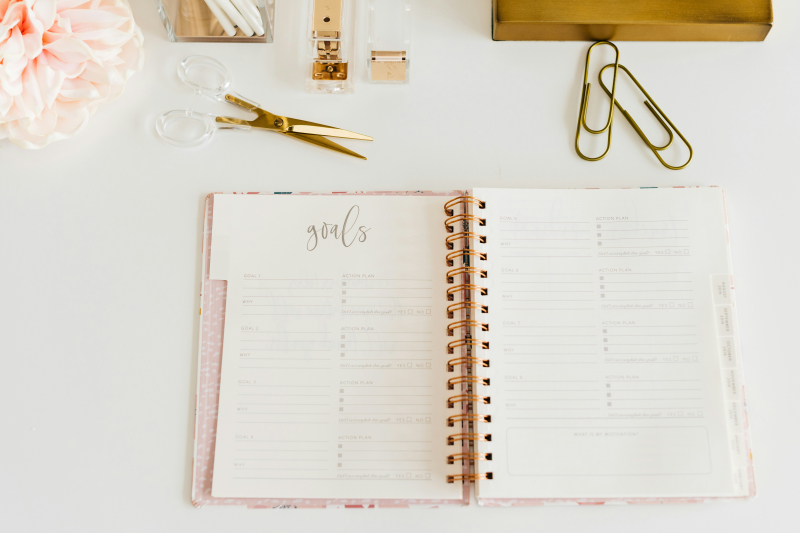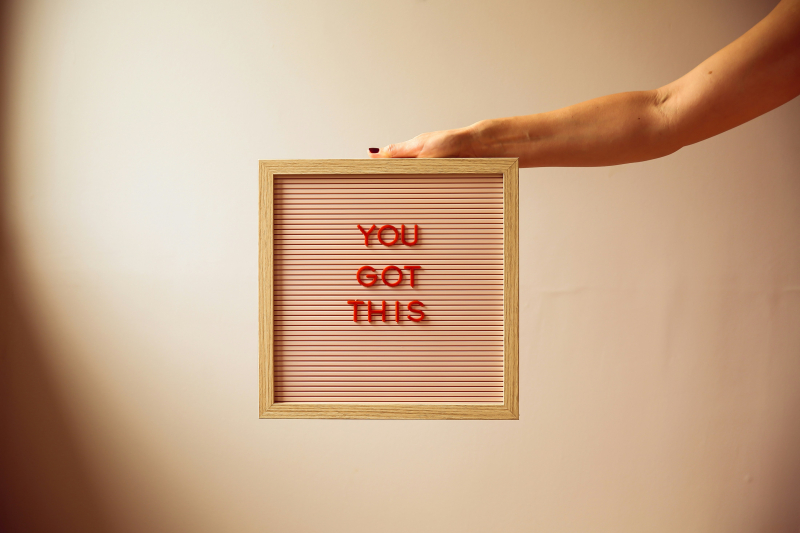Contents
- What does it mean to be confident?
- What can affect your confidence?
- Does being confident mean I never doubt myself?
- Things to consider when building your confidence.
- Practices and exercises to try.
What is confidence? What does it mean to be confident in yourself?
There are three key components to confidence:
- Knowing how to set your boundaries – what you are responsible for, what you can do, and who you let into your boundaries;
- Knowing how to say no;
- Planning and structuring your life.
There is a common misconception that confident people are obnoxious and vain, but that is not true. Sometimes you can’t even tell that a person is confident, but it can be seen in the way they approach, set, and achieve their goals.
Confident people don’t quit when something doesn’t work out. If they fail at something, they learn from this experience and move forward. They also don’t look around to see what others think because they know the reason for their actions. So, confidence is also the ability to set your own goals (which are separate from those imposed on you) and move towards them. There’s nothing that boosts confidence like reaching your goals.
What factors can affect your confidence?
Often, when we look at someone, we think that they were born confident, but that’s not true. Our upbringing can be one of the factors that impact how we see ourselves: for instance, the way our parents reacted to our mistakes or academic performance would have built the foundation of our confidence. If our performance was often compared to that of others, we might struggle with confidence in the future.
As we’ve already noted, confident people don’t compare themselves to others. They know what they want and that’s what they are working towards. Comparing yourself to others or worrying too much about what others think of you, can have a negative impact on your confidence. Instead, it’s better to compare yourself to your past or future self.
Living in the moment without any understanding of what you want in the future can also diminish your confidence. In this case, it is as if your life controls you, instead of you being in the driver’s seat.
It also matters how you treat your mistakes and failures. Sometimes, we quit even before reaching an actual obstacle – we sabotage ourselves and don’t even get to make potential mistakes, contributing to a lack of confidence.
Credit: 
Firmbee.com on Unsplash
If I am confident, does this mean that I don’t doubt myself?
No, having doubts is normal and, in fact, they are a sign of a “grown-up” approach to life. What matters is what we do with these doubts. We could let our doubt stop us from moving any further. Or we could question these doubts: why would I fail? Why did I make this mistake? Should I move forward? And the answers could be different. It can be that you lack knowledge or experience, especially if you are doing it for the first time. A confident person would try and acquire both. You accept that you might make mistakes along the way, but you will learn and keep moving forward.
A confident person knows that obstacles are temporary and normal. You need to identify the problem, figure out a solution, and keep going.
A common piece of advice for building confidence is to “fake it till you make it,” but it is often hard in practice. What are some techniques or exercises for boosting confidence?
Things to keep in mind
First, you need to accept that you are not confident right now. I believe that being honest with yourself about the fact that you don’t know something or lack something means that you’re halfway towards solving this issue. So, it’s important to admit it to yourself and see yourself for who you are. “Yes, I think I lack confidence. What can I do about it?”
Next, you can tackle the problem on different levels. Consider your appearance: try wearing clothes that you feel comfortable in and that are also neat and appropriate to the occasion. When you pay attention to the way you look on the outside, your inner confidence will also grow.
On a behavioral level, confident people don’t rush. Before you answer a question, you can take your time to think. Also, when you are answering, try to avoid such phrases as “I am not sure I can.” You can even try and do an experiment: spend a day answering only yes to things you can do or want to do, and no – to all other things. It’s not always necessary, but it can be a great challenge.
Discipline is also a huge contributor to self-confidence, weird as it may sound. Your sleep cycle, your daily routine – it all plays a role in confidence. We would hardly think of someone with a lack of sleep and a bad temper as confident, and this feeling is contagious.
Credit: Alexa Williams on Unsplash
Practical tips
As for particular techniques, a very effective one is to discover some actions or achievements that you can praise yourself for or that you are proud of. They can range from the smallest ones, like waking up at the right time, to much greater ones. We all do a lot of cool things every day, but often a single blunder can wipe them clear from our memory. So, keep a diary of your achievements. Day after day, week after week, you will see that you are capable of great things – and this will support your confidence.
Read also: Being Your Own Supportive Friend: How To Grow Your Self-Esteem
Another thing you can do is to let yourself make a mistake. Just say “yes, I have a right to make mistakes” or “yes, I made a mistake.” Try doing it in significant situations. Or maybe if someone points out a flaw to you, you can admit that yes, you’ve miscalculated and take responsibility for your action. Don’t try to make excuses, just admit that you were wrong and move on.
If you are scared to start a major project, take the first step. For example, if you have a graduation paper to finish, just make a pact with yourself to spend 20 minutes working on it every day, doing whatever small thing you can do that day. This will also contribute to your confidence because it would mean that you are getting closer to completing that project and that it isn’t just a dead weight on your chest.
Going back to our definition of confidence, setting goals for yourself and achieving them will definitely help your confidence. For example, you can decide to learn 10 new English words every day for a month or quit sweets for a week; these goals can be big or small, but they have to be concrete – you need to define how you would measure your success. Once you do it, you will have this feeling of “oh, I can actually do it!” Even if you, say, go back to eating sweets regularly, you now know that you can go without them if you wanted to – and that’s a huge confidence booster.
It might seem counterintuitive but confident people don’t hesitate to ask for help. It can also be a small step towards building confidence. Next time you don’t know or can’t do something, try asking for help.




